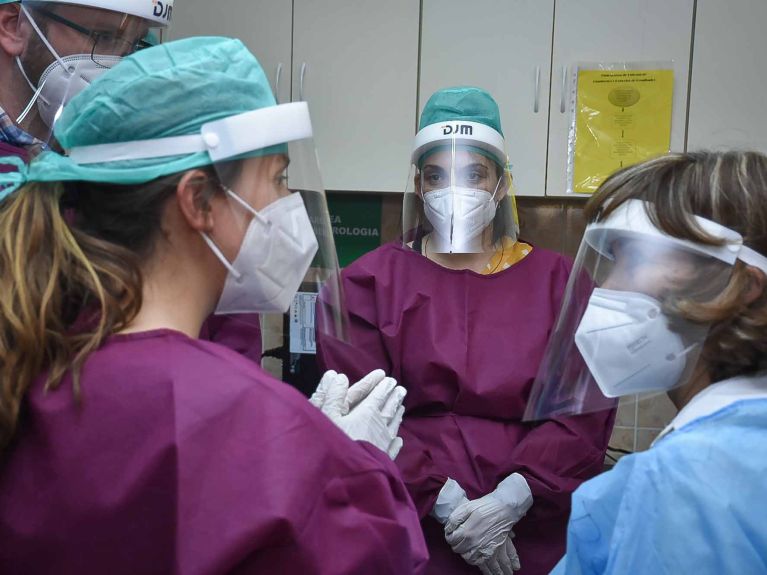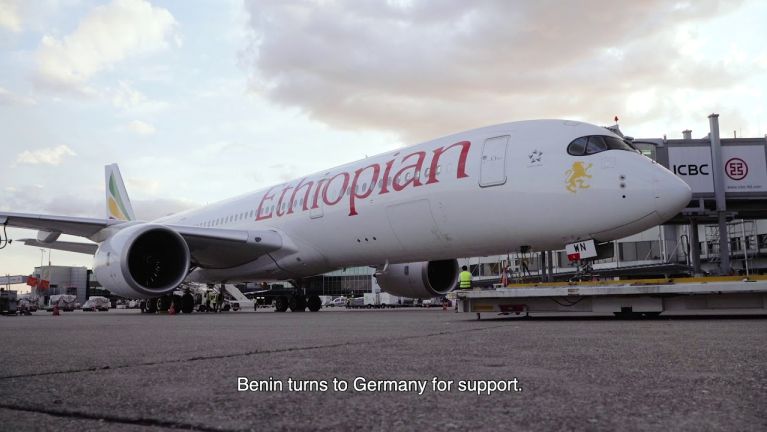Fair access to diagnostics
The German Epidemic Preparedness Team (SEEG) has already helped numerous countries to contain the pandemic.

The German Epidemic Preparedness Team (SEEG) has already provided guidance on the fight against the coronavirus pandemic to countries in almost all regions of the world. The SEEG was set up in 2015 on the initiative of the Federal Ministry for Economic Cooperation and Development (BMZ) against the background of the Ebola epidemic in West Africa. It is run by the Gesellschaft für Internationale Zusammenarbeit (GIZ), the Bernhard Nocht Institute for Tropical Medicine and the Robert Koch Institute. Andreas Gilsdorf heads the SEEG at the GIZ.
Mr Gilsdorf, how is the SEEG contributing to the fight against coronavirus?
A strong emphasis is placed on laboratory support. Our teams have trained colleagues on the spot to set up or strengthen their own diagnostics facilities. Especially initially, PCR tests were prioritised. Since the emergence of different virus variants, the focus has increasingly been on identifying them.

To what extent did the pandemic constitute a new challenge?
Above all, to the extent that travel was so severely restricted. In many countries we were among the few who were allowed to travel at all. That’s why we needed a good infection protection strategy and lots of special exemptions. Furthermore, it was often difficult to get our material into countries because there were simply fewer transport opportunities available.
Dieses YouTube-Video kann in einem neuen Tab abgespielt werden
YouTube öffnenThird party content
We use YouTube to embed content that may collect data about your activity. Please review the details and accept the service to see this content.
Open consent formDo you also regard these operations as a contribution to fair access to health?
We are trying to exploit the impetus provided by COVID and build something that will also be useful in the future. PCR diagnostics, for example, can be relatively easily adapted for use with other viruses. Our partners on the spot should be in a position to strengthen their own health systems.
You would like to receive regular information about Germany? Subscribe here:



